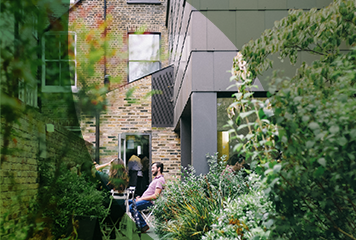The Times newspaper has announced a drive to clean up the property buying and selling process in England and Wales, with a campaign it calls Get Britain Moving. It says the focus of the campaign will be 3-fold: to Speed Up and Streamline the process, and in doing so Save Money.
The covid pandemic and the two-stage stamp duty holidays may have distorted trading over the last twelve months, but the housing market remains an essential driver of the UK economy. Figures show that more than half a million people are directly employed in the housing industry, and that each home move adds up to £38,000 to the economy in terms of fees, commissions, moving costs, fitting out and decoration.
It is often said that buying or selling a house is the most stressful experience any of us will face in our lives. There are currently an estimated 600,000 property sales stuck in the system, twice the number as at this time last year, and over 56,000 agreed sales have already fallen through in the first two months of this year. An average of 22% of sales subject to contract fell through in 2020, and the rate has since risen to 28% as buyers become stuck in buying/selling chains with other property owners.
Even if we don’t have our own housing horror stories to relate, most of us will be familiar with the ups and downs of moving home. Unlucky buyers can make multiple attempts to secure a new home, putting at risk their jobs and financial security, as well as school places and even their relationships. Sellers have been known to announce they no longer actually want to move, only to immediately put their house back on the market at an inflated price. Others, claiming originally to be cash buyers, may later withdraw their offer as they cannot secure a mortgage for the property. Added to this, with demand so high there are delays in the conveyancing process, surveys, and local searches as the system struggles to cope with the number of applications.
The lobbying group The HomeOwners Alliance suggests that each sale that falls through costs the prospective buyer an average of £2,727, in terms of lost conveyancing fees, surveys and searches. This takes no account of the emotional cost to people during the 22 weeks it takes for the average sale to go through, a period of limbo where people are unable to book a holiday, enrol their children in school, or arrange fixtures and furnishings for their new home.
The solution to these problems according to The Times is twofold. Firstly, the house buying process should be conducted on the basis of binding offers, also called reservation agreements. Under this system a contract is drawn up in which the buyer reserves the right to buy the property for an agreed price, whilst the seller agrees not to sell the property to anyone else for a fixed period, typically three to six months. Both parties pay a deposit to cover costs if the contract is not honoured, or alternatively they commit to reimburse any costs should they pull out without a justified reason.
The government committed to a trial of reservation agreements last year, both with and without financial guarantees from buyer and seller, but these are unlikely to go ahead until the stamp duty holiday has expired in September.
The second thrust of The Times campaign is to achieve greater transparency during the house buying process. Using digital technology will ensure speedy and secure transactions, and reduce the uncertainty and anxiety inherent in the current system. Buyers would need to provide proof that they have funds in place and are serious about their offer, whilst sellers must supply better information upfront about their property for the benefit of the purchaser. Suggestions are that a digital passport for the property should be available to buyers, giving them information on such things as ground rent, searches, utility bills, Land Registry details, and planning permissions. Having both buyer and seller “contract ready” will greatly reduce buying times as well as fall-through rates.
Beth Rudolf, chair of the Home Buying and Selling Group, said of the proposal to introduce reservation agreements: “You need to have all the information upfront so you can see what you are buying. Then when you put in an offer you are in a position to commit.”
Time will tell how successful The Times campaign will be. Considering the importance of the housing market to the UK economy, the pandemic may even prove to be the catalyst for fundamental changes to property buying. One thing is certain, the government will have to do something to keep the market buoyant and recoup some of the billions of pounds of revenue lost during the stamp duty holiday.
Bretherton Law have been serving the people of Hertfordshire for over 50 years. Our team of experienced Property Lawyers will ensure that whether you are buying or selling, the conveyancing process will run smoothly and professionally. We offer a same day response promise as well as fixed fee quotes. Bretherton Law are accredited under the Lexcel legal practice and the Law Society’s Conveyancing Quality Schemes. Contact us on 01727 869293 or visit us the contact form below.




